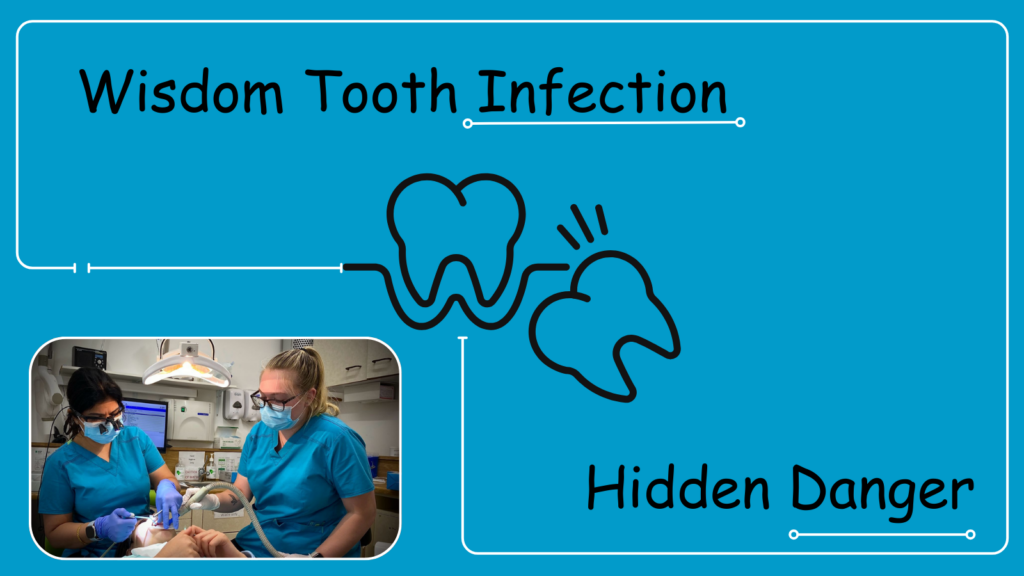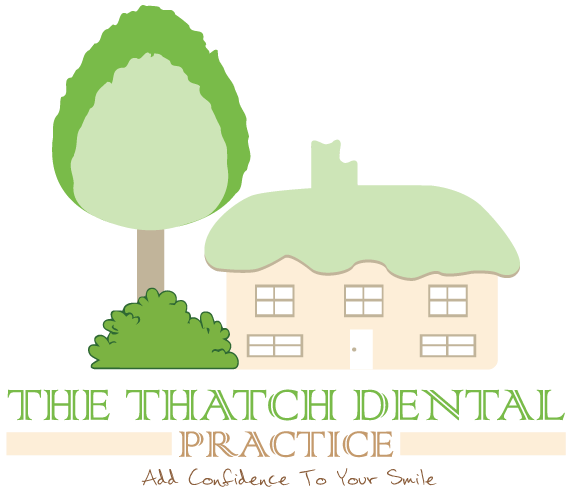
Wisdom teeth, or third molars, are the third and final set of molars to erupt, usually in the late teens or early twenties. There are people who will have no issue, but many will have complications because of the little space available. For example, one of the most common issues is a wisdom tooth infection, which may cause pain, swelling, and in some cases, more serious health risks if not treated accordingly.
Wisdom tooth infection is caused by bacteria in the area around a partially erupted or impacted wisdom tooth. Since cleaning these teeth effectively is difficult, food debris and bacteria readily collect, providing the ideal breeding ground for infection.
This problem is more prevalent than many realize. About 60% of those who have impacted wisdom teeth develop some sort of infection or complication related to them, according to a study published in the Journal of Oral and Maxillofacial Surgery. The concern now is not only an unpleasant few days, but, if the infection takes hold, potential systematic effects on their health.
Let’s look more closely at the risks, symptoms, causes and solutions.
Agitation: Don’t Ignore a Wisdom Tooth Infection
If you ignore an infected wisdom tooth, then serious consequences can follow. Sufferers often downplay their first symptoms as mild annoyance, only to encounter serious complications down the road. Here’s why a wisdom tooth infection is an issue you shouldn’t ignore:
Pain That Is Worsening Over Time – What may have started as a dull ache soon becomes a pounding pain that can interfere with day-to-day routines. Research shows that untreated infections typically advance to serious conditions that demand emergency treatment.
Swelling and pain while eating — An infection can take hold, causing the nearby gum tissue to swell and making it painful to chew. Sometimes, the swelling, which typically starts in or around the eye, can extend into the jaw and throat, making it hard to swallow.
Bad Breath and Unpleasant Taste — A continuous bad taste in the mouth and a bad smelling breath are signs of bacterial infection. This is usually caused by the buildup of pus surrounding the infected tooth.
Fever and Fatigue – If the infection worsens and spreads, your body reacts in the form of fever, chills, and fatigue. This is a strong sign that the problem is not isolated and may be impacting overall wellness.
Abscess Formation — The most dangerous complication of an untreated wisdom tooth infection is the formation of an abscess. This is an accumulation of pus that develops inside the gum, which causes acute pain and inflamation. Abscesses can also spread the infection to other parts of the body — including into the bloodstream (a condition called sepsis), which can threaten a person’s life.
Inflammation Of The Jaw And Face – In case a serious infection spreads beyond the tooth and gums, it can cause visible swelling in the jaw, face, and neck. This condition, known as Ludwig’s angina, can lead to airway obstruction and needs immediate medical treatment.
A case study appearing in The British Dental Journal reported on a 23-year-old patient who delayed the treatment of a partially erupted wisdom tooth, leaving him with mild discomfort. For two weeks, the swelling increased, and the infection reached the jaw, necessitating hospitalization and intravenous antibiotics. The patient was ultimately taken for emergency surgery to drain the abscess and extract the offending tooth. This case illustrates how quickly what starts out as a small problem can get out of hand.
How To Avoid And Treat Infections Of Wisdom Tooth
Early intervention can prevent severe complications if you suspect you have an infection of your wisdom teeth. Here’s what you need to know:
Immediate Home Remedies
Visit a dentist but before you go there, you can try these temporary home remedies to relieve yourself of pain and to prevent the infection from causing any further damage:
Saltwater Rinse – Gargling warm salt water helps reduce bacteria and soothe inflamed gums. Gargle half a teaspoon of salt into a glass of warm water a few times a day.
Cold Compress – Putting an ice pack on the injured area can numb pain and bring down swelling.
Pain Relievers – OTC medications, including ibuprofen or acetaminophen can help temporarily.
Hydrogen Peroxide Rinse — Diluting hydrogen peroxide with water and gargling can help kill bacteria.
While the remedies can alleviate some symptoms, they do not constitute a replacement for professional treatment.
Treatment Options with Professionals
Antibiotics – Dentists may prescribe antibiotics like amoxicillin and clindamycin for the mild, moderate, and severe infections in order to control the growth of bacteria.
Dental Cleaning — A professional cleaning removes stuck food residue and bacteria; this reduces the chances of further infection.
Abscess Drainage – If the pain suffers from an abscess, the dentist may have to drain the pus from it to ensure that the infection does not spread.
Wisdom Tooth Extraction – Dentists, in most cases, suggest the removal of the infected wisdom tooth to avoid further complications. According to studies, 85% of wisdom teeth are extracted for the reasons of recurrent infections or impaction.
Preventive Strategies for Future Infection
Your oral health care can go a long way to reducing your chances of developing a wisdom tooth infection:
Brush and Floss Regularly — Make use of the back of your mouth where your wisdom teeth grow.
Use an Antibacterial Mouthwash – Clears away bacteria and keeps gums healthy.
Dental Checkups – Visiting the dentist every six months can help identify early signs of infection and prevent larger problems.
Think about Proactive Removal – If your wisdom teeth are impacted or have a high risk for becoming infected, having your wisdom teeth removed before symptoms appear can be a smart decision.
Final Thoughts: Do Something Before It’s Too Late
A wisdom tooth infection isn’t a minor annoyance — it’s a serious health problem that can cause painful and life-threatening complications if not treated. However, whether you’re noticing early stages or dodging a full-blown infection, early action is key.
If you’re feeling pain, swelling or other symptoms, see a dentist right away. Illness is far too great to chance od the health. However, with proper oral hygiene and timely treatment, you can avoid unnecessary suffering and safeguard your overall health.
Time to get your dental health in check, before you start figuring out how to carve out a portion of your mouth to save some money.








